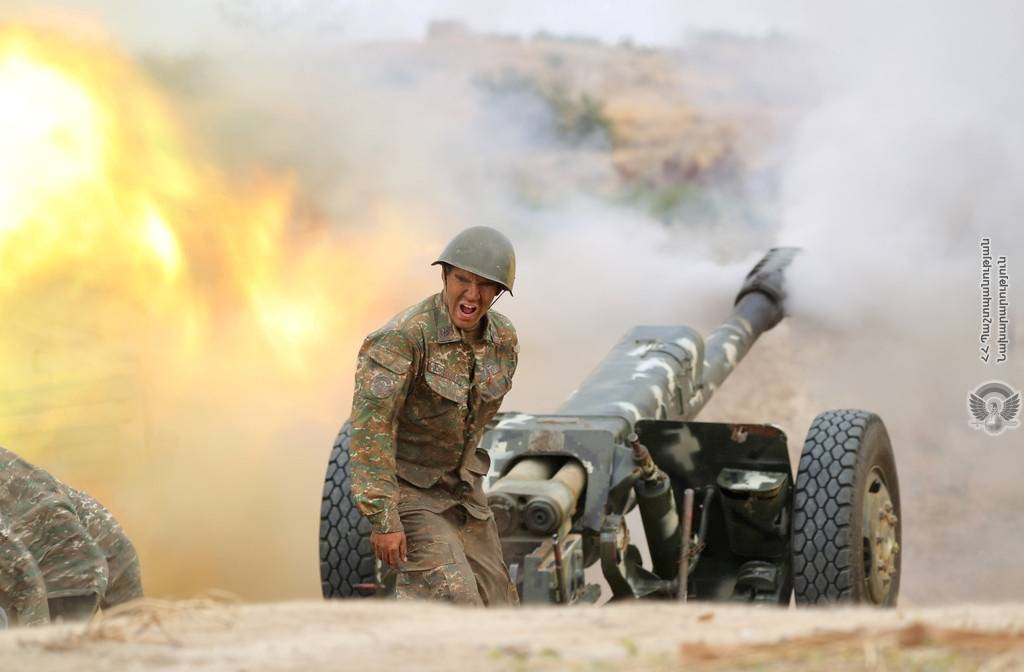The "frozen conflict” between Armenia and Azerbaijan has turned very hot. What may seem to many Westerners a minor clash in a remote corner of the world actually has significant implications for regional security, energy markets and the ambitions of two problematic strongmen: Vladimir Putin of Russia and Recep Tayyip Erdogan of Turkey.
The fighting, which goes back to the collapse of the Soviet Union, centers on a small enclave of ethnic Armenians inside Azerbaijan called Nagorno-Karabakh. The mountainous self-declared republic (which is not even formally recognized by its patron, Armenia) has a population of 150,000 but is highly militarized. The Azeris lost control of the area in a conflict in the 1990s that cost 30,000 lives, and despite much saber-rattling have been unable to get it back though diplomatic or military means.
In my time at the North Atlantic Treaty Organization, I visited both countries several times. Dislike and distrust permeated the environment. The two defense chiefs at the time hated each other, and although both nations were nonmember partners with NATO (and had small troop contingents in Afghanistan), all that either man wanted to talk about was the duplicity and venality of the other. Unfortunately, each was accurately channeling the national view toward their neighbor in the Caucasus. Neither side seemed willing to give an inch, either literally and figuratively.



